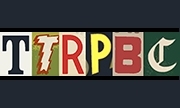2. Binaries and the Liminal
There are a lot of binary opposites in this book, and a lot of standing in the in-between space (liminality). In Chapter 13 (page 129 in my book), Casiopea is described as “caught in an in-between state” regarding whom she can socialize with because of her grandfather’s edits. Of course, she is in an in-between state in others ways, too. Particularly, she and Hun-Kamé are in an in-between state as they share their divinity and humanity with each other during the bulk of the novel.
In addition to the class and divinity/humanity states, I noticed religion/secularity, Christianity / Mayan religion, good/evil, male/female status, small town / big city, colorism (lighter skin color more highly valued in both small town and big city, Vucb-Kamé / Hun-Kamé, and lots more.
Were any of these binary opposites or the in-between states interesting to you?

 Help offset server costs by donating. This is totally optional. Any overages will go to library fines or new books.
Help offset server costs by donating. This is totally optional. Any overages will go to library fines or new books.
Comments
Well observed. I think also modern/traditional.
Having traveled to Xibalba myself by underground river in Belize, I can relate somewhat to the idea of being on the journey itself as a liminal state - neither the beginning nor the end. We started in broad daylight and entered the river - moved upstream by walking/swimming - then emerged into a cave (Xibalba itself). That time in the river was the bulk of the journey, and it was very different than either the start or the end.
The era - 1920s - is also neither old nor contemporary to us readers.
I liked the whole twinning theme, which as has been said was brought out in many ways. At one stage (when I was looking for names of mythological twins) I read up a bit about the central American pairings, but I decided that for my needs the unusualness of the names would interfere with the story, so I dropped them again. But here the choice works really well, and gives some tangible form to the opposition of poles which runs through the book.
How you've mentioned it, binary opposites is a clear theme in the book. At least, there's a lot of characters being presented with binary choices, and then taking a third option which is a middle ground.
Does this fit with a more general theme that "the world doesn't have to be this way"? People don't have to accept the contexts they're presented with, and can find their own places in the world.
> Does this fit with a more general theme that "the world doesn't have to be this way"? People don't have to accept the contexts they're presented with, and can find their own places in the world.
It is interesting with twins - in one sense they represent a closeness of identity more tightly bound than a regular friendship or partnership, and in another they represent poles of opposition and antagonism. Mythologically they have done both. In this story, I guess Hun and Vucub bring out the opposition side, and the Hero Twins the identity side - so far as I recall they are not even given individual names here.
The Hero Twins names were Hunahpu and Xbalanque. I do not think they were used in the book either.
There are a lot of binaries, which is a definite theme - the main character and her cousin, the two death gods, the Hero Twins, the twin sorceres. An interesting thing is that things have "gone wrong" when these pairs are competing rather than cooperating. The two death gods "shouldn't" be enemies. The main character and her cousin would both have easier lives if they cooperated - though there the cousin bears almost all of the blame, his other relatives the rest.
So the dualities in opposition is an upset to the cosmos.
Interesting point. Some dualities are harmonised (the death gods), some are broken (Casiopea and Martin). In both those cases, things are better once the opposition stops.